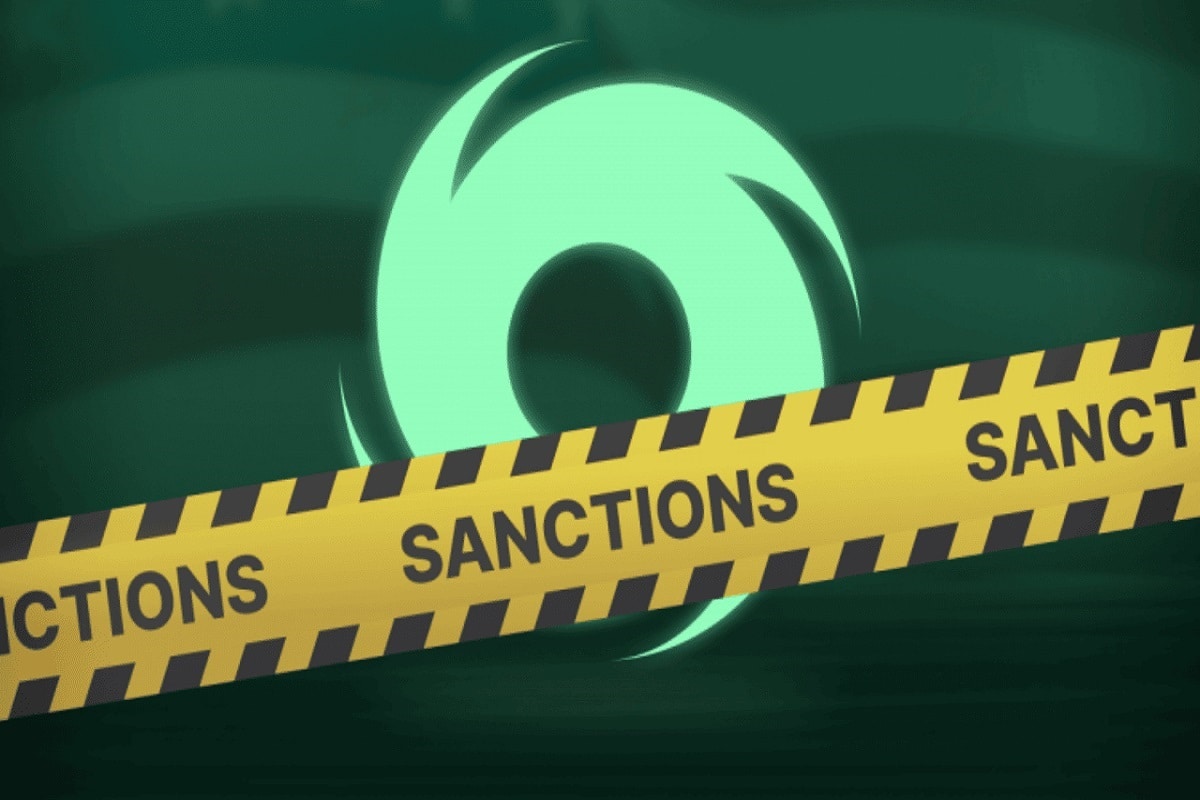Breaking: Is DeFi In Trouble? Aave Blocking All Addresses Linked To Tornado Cash

The DeFi has faced a setback after the U.S. Treasury Department’s Office of Foreign Assets Control (OFAC) sanctioned crypto mixer Tornado Cash. Several Twitter users today revealed that DeFi lending giant Aave is also blocking addresses linked to Tornado Cash.
Well-known ENS addresses have reportedly received 0.1 ETH from sanctioned addresses. In response, DeFi platforms including Uniswap, Aave, and Balancer have blocked accounts that received funds from Tornado Cash.
Aave Blocks Addresses Receiving Funds from Tornado Cash
Wallet addresses of prominent users including Tron’s founder Justin Sun, Sassal0x, and Shixing Mao, co-founder of Cobo crypto custodian are blocked by Aave.
According to PeckShieldAlert, over 600 addresses have received 0.1 ETH from Tornado Cash 0.1 ETH contract, these include personalities and centralized exchanges.
People believe “decentralization in DeFi” is in trouble as DeFi platforms including Aave, Uniswap, Balancer, dYdX, Alchemy, and Infura blocked addresses. In fact, platforms like Discord and Github have also removed services related to the crypto mixer.
It is a huge decentralization risk. The government doesn’t regulate these blockchain-focused companies. Thus, sharing data or following laws without regulation fails the whole purpose of decentralization.
Moreover, one of the Tornado Cash developers was arrested in the Netherlands yesterday. The crypto community condemns arresting developers of open-source software by authorities.
Users can still access the wallet by using an alternative front end, as the dApps have blocked the front end only. However, it is not immediately clear if DeFi platforms would ban these addresses at the smart contract level.
Moreover, many companies and organizations have banned Tornado Cash after the U.S. Treasury Department’s Office of Foreign Assets Control added it to its Specially Designated National list.
Impact of the Crypto Mixer Ban on Stablecoins
The Tornado Cash event has challenged the decentralized nature of stablecoins USDC, DAI, FRAX. Stablecoins are the backbone of the DeFi industry. With Circle blacklisting all Tornado Cash wallet addresses, restricting the movement of USDC funds based on sanction orders by the U.S. OFAC.
Besides, DAI and FRAX are backed by USDC to maintain their peg to USD. People believe these are now at risks as the OFAC can forcibly take control of it by sanctioning any smart contract, DAO, protocol, or company to make it illegal.
Recent Posts
- Crypto News
Ethereum Faces Selling Pressure as BitMEX Co-Founder Rotates $2M Into DeFi Tokens
Ethereum is under new sell pressure after a high-profile crypto trader sold his ETH assets…
- Gambling
Best Crypto Casinos in Germany 2025
If you’re a German gambler tired of strict limits and slow payouts at locally licensed…
- Crypto News
Tom Lee’s Fundstrat Warns Clients Bitcoin Could Fall to $60,000 Despite His ATH Public Forecast
Top asset manager Fundstrat has advised its private clients to expect a pullback in Bitcoin…
- Crypto News
125 Crypto Firms Mount Unified Defense as Banks Push to Block Stablecoin Rewards
Over 125 cryptocurrency companies have joined forces to defend stablecoin rewards programs against banking industry…
- Crypto News
BlackRock Bitcoin ETF Ranks Among Top ETFs In 2025 Despite Crypto Downturn
The BlackRock Bitcoin ETF (IBIT) has emerged as one of the top exchange-traded funds (ETF)…
- Crypto News
Stablecoin Adoption Deepens as Klarna Turns to Coinbase for Institutional Liquidity
Klarna has taken a major step into crypto finance by partnering with Coinbase to accept…